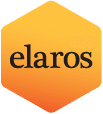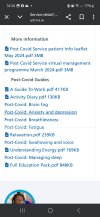To: c19-yrs <
c19-yrs@elaros.com>
Subject: Request for recordings of meetings
re: the meeting on 2nd July titled Integrating ME/CFS and Long Covid Specialist Services, led by ELAROS and the ME Association, and any earlier meetings for which recordings are available.
Dear organisers,
I applied to attend the meeting on 2nd July, but have not received confirmation. In any case, a two hour online meeting is more than I can manage due to poor health, so I am requesting copies of the meeting and the earlier meeting in February.
I understand that the meeting is intended for clinicians, however, I think it is vital that well informed people with ME/CFS and Long Covid should be able to review the recordings and provide feedback. I am in the process of reviewing the beta version of the Open OH app and will be submitting my comments to the consultation.
I think I can also contribute usefully with feedback on the plans for adding more resources to the app developed by Professor Sarah Tyson's team, BACME, and others. I participated in the initial testing of the first iteration of Prof Tyson's questionnaires and have serious concerns about her work. The ME Association has, as far as I am aware, not opened up later stages in the development of her Clinical Tookit and PROMs to public consultation, so we are very much in the dark about what she is producing. Opening up the recordings of the meetings you have been holding to scrutiny by patients, as the likely recipients of clinical care based on these resources, just as you have made the beta version of the app open for feedback, should be an essential part of this process. I am sure you would rather be made aware of any problems with the approach taken by some of those involved as soon as possible in the process of development.
I look forward to your positive response. If you need to know more about me and my request, I will be happy to answer questions.
Thank you,
Trish Davis



